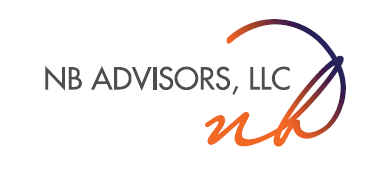What you need to gather depends on the complexity of your return.
That sound you hear is the clock ticking. The deadline to file your taxes is approaching. If you’re planning to use the services of a CPA, you’ve got a homework assignment due. Successful tax preparation and filing requires you to have all the necessary documentation ready.
What’s needed? It’s not a loaded question, but it depends on the complexity of your return. Your best bet is to direct that question to your CPA. Meanwhile, you can move general preparation along by putting a check mark next to the applicable items you’ll find here.
Where to begin
There are 2 things that are especially important if this is the first time you’ll be working with a CPA to prepare your taxes.
- You’ll need the social security numbers for yourself, your spouse, and all dependents. Keep in mind that a dependent can also include an elderly parent.
- Locate and print last year’s federal and state tax returns, along with all the additional submitted forms and documentation. Your CPA doesn’t need this material to prepare and file the current year’s tax return, but you might find it helpful in guiding you to find the necessary documentation needed to complete the tax preparation process – without sending you home to search for missing information.
Income
- Your employer will have issued you a W-2 form. It’s common today to receive an electronic copy, as well as one sent by physical mail. Your CPA can use either version.
- Are you self-employed? Companies or individuals who pay you are required to provide 1099 forms. There is more than one type of 1099 form, and the version you’ll get will depend on the type of payment you received. Money received from investment earnings is reported using 1099 forms, as well. Your CPA needs each of the forms that were sent to you. Why? The IRS received a copy, too, so your tax return should reflect what’s on their records.
Deductions
This collection of documents tends to be the largest assembly of information. Shortly before the appointment to meet your CPA for tax preparation is NOT the best time to start looking for this information. Give yourself ample time. In a perfect world, setting aside this information throughout the year as it’s generated is the best way to go about it.
Generally speaking, deductions help you to reduce your taxable income. The more deductions you’re able to declare, the lower your tax obligation becomes. Your CPA will want to see the documentation related to these deductions, which usually are in the form of receipts.
Here’s the true value of tracking down copies of what can be deducted. Some tax deductions require copies of the receipts and documentation to be included with your return. If your tax return is flagged for an IRS audit, this documentation is how you’ll prove you are entitled to claim the deductions. Using the analogy of homework, the IRS isn’t going to approve a deduction unless you can “show the work.”
Not all deductions require you to itemize, and your CPA can provide expert advice in this area. Non-itemized deductions are listed directly on Form 1040. Some also are listed on Form 1040A. Here’s a list of the most common deductions your CPA can claim for you when you provide the appropriate documentation:
- Did you make any charitable donations? Your CPA can help you reduce your tax bill with this information, but remember that the IRS may disapprove the deduction if you don’t have documentation in the form of a receipt for your charitable donation.
- Medical bills throughout the year are tax deductible, so you’ll want to find all the associated receipts. However, you can only claim this deduction if the total amount is more than 7.5% of your gross income.
- One of the most-used deductions is for your mortgage interest and property taxes. Many financial institutions escrow your property taxes. You’ll receive a Form 1098 listing this amount, as well as how much interest you paid on your home loan the previous year.
- Retirement account contributions can also be deducted. The IRS publishes contribution limits, and your CPA will use that information, which will be based on the documentation you provide about IRA or self-employed retirement accounts.
- Did you buy a car or make a similar large purchase last year? Find and bring along those receipts. Tax paid on certain major purchases can be added to a deduction you can claim for state and local taxes. Don’t worry. It’s not necessary to have a receipt for the rest of the purchases you made. Your CPA will use a table provided by the IRS to determine the average amount you can claim as a deduction. Those larger purchases can be added to this average amount.
- Take out a student loan? Interest paid is tax deductible. Keep in mind that the IRS will reject your deduction claim unless you can provide the appropriate 1098 form. As a student, you can also claim a deduction for any tuition or fees you paid.
Tax credits
Tax deductions help to reduce your taxable income. Tax credits cut the amount of tax you owe, dollar for dollar. You don’t want to overlook this opportunity, but you’ll need the proper documentation to claim tax credits. The most common credits include:
- The retirement savings contributions credit
- The child credit
- The premium tax credit (this is in conjunction with Affordable Care Act health insurance coverage)
The irony is that after you’ve gone through the effort of tracking down and providing all this documentation, your CPA could likely file the tax return electronically. You have the option to keep all of these receipts and associated documentation scanned and stored electronically, too.
Some food for thought as you prepare for the following year.



